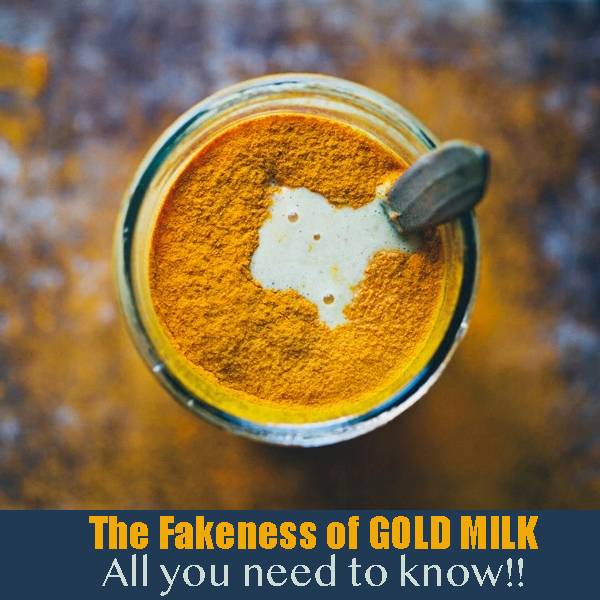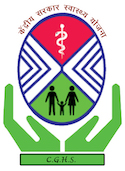Ankylosing Spondylitis Treatment: Ayurvedic Cure
Many claim for the ankylosing spondylitis treatment, but when it comes to sharing the exact “thought process” about the treatment of AS, they have nothing to share. At Sukhayu Ayurved, under the supervision of Vaidya Pardeep Sharma, we are providing the complete treatment for Ankylosing spondylitis. Ankylosing spondylitis treatment in Ayurveda is based on some principles. Here we are discussing all those principles in detail.
Ankylosing Spondylitis(AS) is a chronic inflammatory disease of the spine, which frequently leads to fusion of the vertebrae.
Spondylitis literally means inflammation of the spine. Ankylosing refers to the fusion of bones. In this case occurring at adjacent vertebrae, which results in a stiffened or “ankylosed” appearance on X-ray imaging.
The word spondylitis comes from Greek σπονδυλ- “spine” and ἰτος- “inflammation”. Spondylo- means “vertebra”, so spondylosis means simply “bone inflammation”.
However, it has become common medical usage to call diseases involving the spine by the name of the vertebrae affected. Thus spondylitis means spinal inflammation, and ankylosing spondylitis means inflammation of a specific part of the backbone. “The sacrum”, which is made up of five fused vertebrae.
The complex of Ankylosing Spondylitis
The sacrum is located right between your hips and supports most of your body weight. Ankylosing Spondylitis predominantly affects males. With a ratio of around 8:1, but many females are also affected as well as children and infants. AS is a prototypic seronegative spondyloarthropathy.
It does not involve the major histocompatibility complex locus HLA-B27. However, some individuals who develop it do so after carrying the HLA-B27 gene.
The course of AS is variable. Initially, there may be acute lower back pain and stiffness, which over months or years results in fusion of the vertebrae and chronic pain.
The cause of AS is unknown but genetic factors likely play a role as well as environmental triggers such as bacterial or viral infections. Individuals with certain genes known to be associated with AS (HLA-B27) can develop spondylitis. Even if they do not carry the gene, indicating an environmental factor is at play.”
The incurability of Ankylosing Spondylitis
The incurability of Ankylosing Spondylitis is probably due to its extremely slow and progressive course. The chronic inflammation of the spine typically leads to fusion of the vertebrae. This is an abnormal condition, which usually leads to disability and loss of function at a relatively early age.
When it comes to ankylosing spondylitis treatment in Ayurveda, it is well considered.
The long-term prognosis for Ankylosing Spondylitis has dramatically improved. Today there are several good treatment options available that can help reduce pain and stiffness and maintain mobility. The goal in treating AS is to decrease pain and prevent further damage to spinal structures. Along with maintaining or improving function.
These two articles will help you to build a proper insight that “genetic” problems are not incurable always.
The self destructing Immune system
Ankylosing Spondylitis (AS) is considered an autoimmune disease. The immune system mistakenly attacks healthy tissue-in this case tissues lining your spine (the sacroiliac joints and intervertebral disks).
Therefore the immune system attempts to destroy healthy tissue (which it thinks is a bacterial invader), causing inflammation. “The usual treatments for AS only suppress the immune system. This reduces inflammation but also impairs normal immunity. Research has determined that one cause of AS involves faulty signaling by certain cells in the immune system called regulatory T cells, or Tregs for short.”
Treatments that suppress immunity will have less effect on this faulty signaling. That’s why researchers are studying new ways to stimulate the production of more Tregs-cells. These can help stop the progression of AS without compromising normal immunity. Current research projects are exploring techniques to produce these desired results. This includes genetic modification of cells and the use of monoclonal antibodies. The ankylosing spondylitis treatment in Ayurveda follows this understanding.
Current Treatment of Ankylosing Spondylitis
“For now, here’s what we know about current treatments for Ankylosing Spondylitis:
- Nonsteroidal anti-inflammatory drugs (NSAIDs) such as ibuprofen or naproxen can help reduce pain and swelling. They do not prevent the progression of AS. These stop it in its tracks if taken at the first signs.
- Steroids like prednisone also decrease inflammation and slow disease progression.
If you have been diagnosed with ankylosing spondylitis–
perhaps these treatments will help you to postpone the fusion of your vertebrae so as to maintain as much mobility as possible.
Ankylosing Spondylitis and the Gut Microbiome
The microbiome is the collective term for the trillions of bacteria, viruses, fungi, and parasites. These live on and within our bodies. The associated microbial genes outnumber our own human genes by about 100-1. According to a recent estimate from researchers. There are around 10 trillion living cells in a typical 75 kg male that carry.
Ankylosing spondylitis (AS) is a chronic inflammatory disease that primarily affects the spine. But may also affect other joints and organs. The cause of AS remains unknown, although genetic predisposition seems to be an important factor in disease development. In recent years, there has been increasing evidence that intestinal bacteria play a role in autoimmunity. And that their composition might influence the severity of autoimmune diseases such as AS. This gives rise to the study’s objective: “To characterize the gut microbiome in AS.”
The Microbiota and Immune System
The gut microbiome is the collective term for all bacteria, viruses, fungi, and archaea residing in our gastrointestinal tract. It has been demonstrated that the microbiome composition differs between diseased patients and healthy individuals. Gaining a better understanding of how changes in bacterial communities influence human health. This may open up new ways to treat various diseases by influencing the microbiome. Such knowledge might also explain disease association with specific bacterial species since AS, obesity, IBS, cancer, and rheumatoid arthritis. These have all been shown to be influenced by intestinal microbiota.
Gut microbes contribute significantly to autoimmune pathogenesis. Directly or indirectly through interactions with host immunity. The skill which is under imbalance in autoimmune diseases such as AS. Treatments aimed at restoring homeostasis by modifying the microbiome, intestinal epithelial barrier integrity, and mucosal immune response might be a promising therapeutic strategy for preventing or treating AS.
The evidence behind “Ankylosing Spondylitis and Microbes”
In a study, scientists from the University of Eastern Finland studied microbiota composition in AS patients and healthy controls. Using 16S ribosomal RNA gene sequencing combined with bioinformatics analysis techniques such as UniFrac. They were able to identify specific microbial components that discriminate between these two populations. Total microbial diversity decreased in cases compared to controls. At an increased level of significance were Actinobacteria (6% and 20%) and Bacteroidetes (8% and 19%). The main genera identified which differed between groups included: Fusobacterium (decreased), Haemophilus (increased), and Prevotella (decreased). Mucispirillum, a genus detected by 16S sequencing, was not found in any of the case-patients sampled.
These findings indicate that AS patients suffer from dysbiosis, i.e. an unbalanced proportion of various types of bacteria in the gut microbiome.
Treating Ankylosing Spondylitis with Ayurveda
The altered composition of microbiota suggests that it might be possible to use specific alterations in gut bacteria as targets for diagnosing or treating AS. However, at this stage, the researchers are unable to suggest clinical applications for their results.
Given that they were obtained by studying stool samples only and do not represent the intestinal environment directly within the diseased tissue. Where more profound changes in microbial populations may occur. Further in vivo studies are necessary to determine the clinical relevance of these findings.
How does Basti help the microbiota?
In our body is the question that has been asked to many people and why it does not help is another question which has been asked to few.
Basti will help in microbial flora in the ileum/colon/rectum region, that’s where Basti operates – by reducing ama (undigested food content). It also helps with Vata dosha. So we can say Basti helps by nourishing Agni (digestive fire) and increasing Ojas (concentration of antioxidants like glutathione etc.).
So what is dysbiosis:
Dysbiosis refers to an undesired alteration of normal microbiota, such as reduction in beneficial species or expansion of potential pathogens. This dysregulation may result in a state of inflammation in the host. That is accompanied by tissue damage, decreased organ function, and disease. Here, we review dysbiosis in inflammatory bowel disease (IBD), irritable bowel syndrome (IBS), autoimmune hepatitis (AIH), and primary biliary cirrhosis (PBC). These examples illustrate how alterations in microbiota composition may lead to immune dysfunction and disease.
The dysbiosis in AS patients was off-balance due to a lower commensal bacteria count than normal. The specific microbes identified may be responsible for triggering an immune reaction against them leading to arthritis onset or worsening of symptoms while increasing numbers of Actinobacteria might help control the activation of lymphocytes which cause inflammation.
The final words
Therefore the Ayurveda treatment protocol for Ankylosing Spondylitis works on scientific parameters. When we follow these parameters in practice, it gives best results in ankylosing spondylitis treatment. For proper understanding about the successful treatment of Ankylosing Spondylitis, check the case studies: CASE SERIES ABOUT AS.














